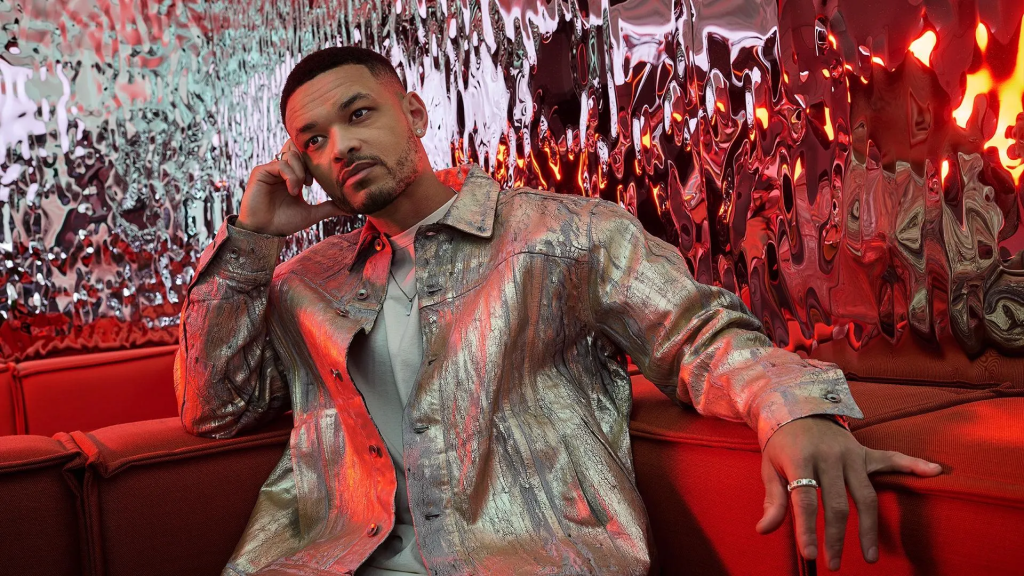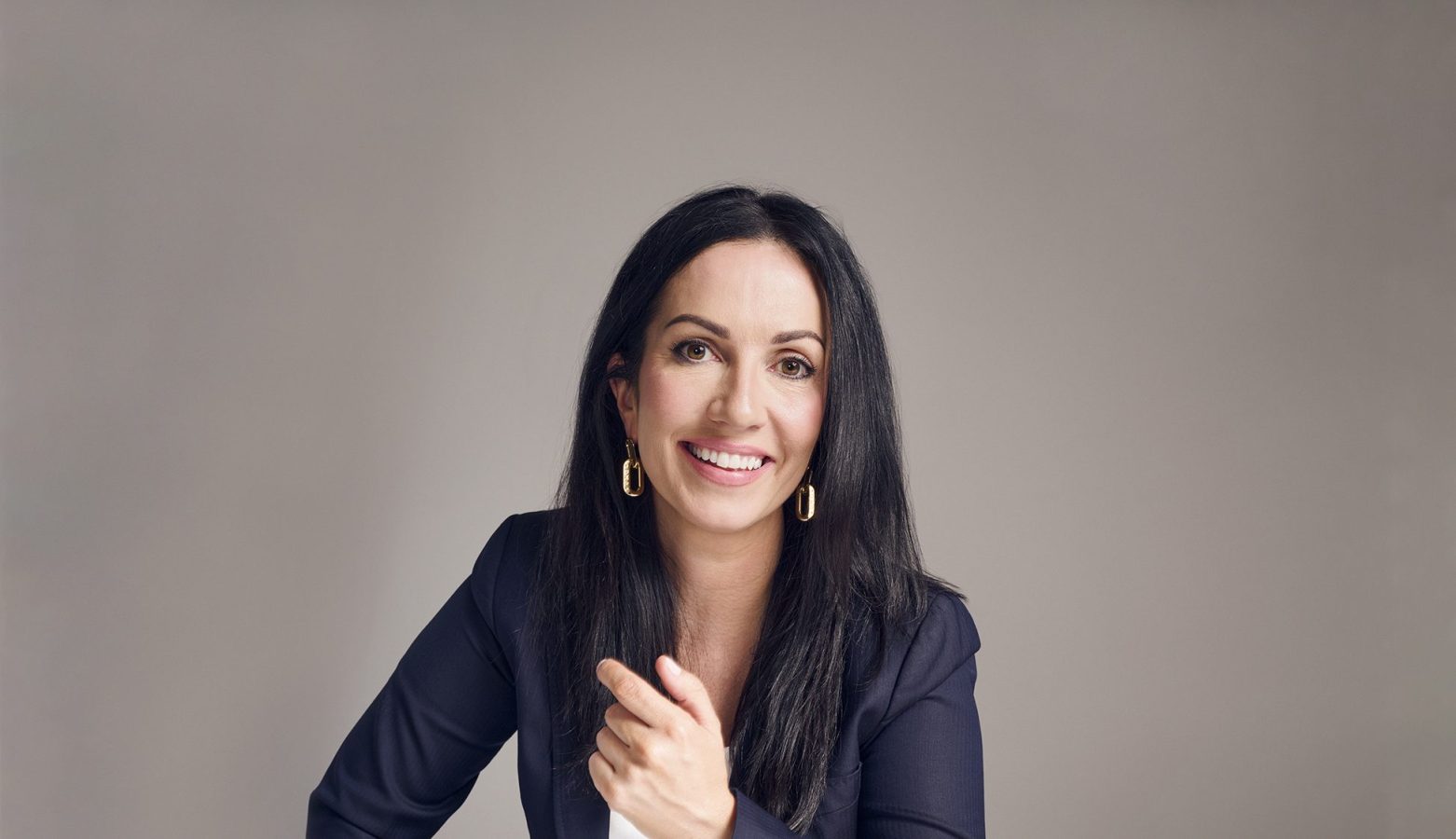Streamers want him. But Steven Bartlett says he can grow his media empire better than anyone. Now he’s taking on the U.S. market to prove it.

It’s a Monday morning in March, and Steven Bartlett sits in his studio in London’s hip Shoreditch neighborhood to record the latest episode of his hit podcast The Diary of a CEO. With more than 10 million YouTube subscribers and 25 million social media followers, the interview show is one of the most popular in the world. Only Joe Rogan has more listeners when it comes to hosted podcasts. Today, Bartlett is recording a debate between economics influencer Gary Stevenson and entrepreneur Daniel Priestly, where they’ll argue whether entrepreneurship can save the middle class. The episode will later attract 3.6 million views and more than 46,000 comments on YouTube alone.
The debate is fiery, but the buzzy content is only partly why millions tune in. Data plays a vital role, too. Bartlett, who launched two social media companies before hitting podcast fame, has already tested and optimized every aspect of the show. He’s calibrated each detail for maximum attention: the capital letters and exclamation points in the episode’s title (“EMERGENCY DEBATE: They Lied About The Economy Recovering!”), the lighting, the camera angles—even his raised eyebrows in the preview thumbnail photo. Each factor is part of Bartlett’s blueprint to attract viewers.
Says Bartlett, 32: “I’ve not met a single podcast network, company, media conglomerate in the world that can help you grow your podcast using the modern platforms in the way that we can.”
And grow he has. Launched in 2017 as a hobby to let Bartlett get inside the minds of other CEOs, the podcast has attracted more than 1 billion streams, including 50 million monthly listeners in December alone. Guests have ranged from comedian Trevor Noah and YouTube titan MrBeast to a mix of self-help experts including longevity gurus, nutritionists, and sex therapists. In 2024—thanks to his mix of compelling content and growth hacking—Bartlett says the franchise generated $20 million in revenue from brand partnerships with brands like LinkedIn, Oracle, and Shopify, speaking engagements, and hawking products like hoodies and branded journals.
He’s out to make even more—and do it as a free agent. While other podcast royalty have signed mega deals with streaming networks (read: Alex Cooper’s $125 million partnership with Sirius XM; Joe Rogan’s $250 million deal with Spotify), Bartlett is building on his own. It’s not for lack of interest. Last October, Bartlett flew from London to New York City to meet with several of the world’s biggest media networks to discuss potential partnerships. Bartlett won’t say who or how much, but Forbes estimates that $100 million contracts were in play.
Why turn down frothy deals? For Bartlett, the choice is simple—he believes he can do it better solo. “We looked at what they did in terms of testing, experimentation, innovation, and I felt like I was looking at the past,” says Bartlett. “When I see what happens here, I’m looking at the future.”
The future was far from certain back in 2017 when Bartlett launched the podcast. Unknown in the social media sphere and lacking a significant following, Bartlett leaned on data analytics and constant experimentation to grow. Soon, he was A/B testing every aspect of the podcast: keywords, captions, punctuation—even whether to smile in the preview photo (looking serious usually worked best). But it was 2020 before he really began investing in the show. Bartlett says it was a 2023 episode with former Google exec Mo Gawdat that was a game changer for the podcast.
“Apple said it was the most shared podcast episode of 2023 in this part of the world,” Bartlett says, adding “That episode taught me that the most important thing in podcasting isn’t actually the amount of followers someone has or how famous they are. It’s ultimately about the value that it gives, because people will share it.”
Growing up, Bartlett always felt like an outsider. Born in Botswana, Africa, to a Nigerian mother and British father, his family moved to the English countryside when he was young. He felt like an underachiever compared to his two brothers and looked different than everyone at school.
“I was desperate to fill that shame or insecurity about being the Black kid or the poor kid… the way that I thought I could fill it was the validation from doing something great,” Bartlett says. “Whether I was being dragged or I was driven, I think the two are indistinguishable.”
Validation came from entrepreneurship. In 2013 he enrolled in Manchester Metropolitan University, but quickly dropped out to build Wallpark, an online messaging forum for students to share local events and trade textbooks. While he only ran the startup for a year, it delivered him a master’s in digital marketing. “It showed me the power of social media at a time when people were quite contrarian and negative towards it,” says Bartlett. “The most important thing from that period of my life was understanding this new attention economy and being able to cultivate and build a big audience on the internet through content.”
In 2014, Bartlett launched Social Chain, a marketing company that connected brands with potential customers through user-generated content. The startup made him a young millionaire. In 2019, he merged it with Lumaland to form a $200 million-valued public company. It also landed Bartlett a spot on the Forbes 30 Under 30 Europe list in 2020. He left Social Chain that same year because he and the board did not agree on the direction for the company, and he didn’t have enough of a controlling stake to make the decisions he wanted. But his growing business fame led him to Dragon’s Den, the U.K. investment show that predated America’s Shark Tank. And he’s since invested in unicorn companies like SpaceX and Whoop. Still, he had the urge to build something new. “I asked myself: ‘Because now I have the money and I can do what I want with my life—what would I do?’” says Bartlett. “The answer was loud and clear in my brain—‘that little podcast thing you started.’”
Bartlett spent £50,000 on tools like GoPros and self-moving cameras to build The Diary of a CEO full-time. Soon, he was posting twice weekly, going all in on video, and investing in new analytics. Take Pre-Watch—a custom system that tracks the engagement of 1,000 volunteers who watch an episode before it’s posted. A click of the spacebar means they’re particularly interested, while diverted eyes show they’re losing attention. Bartlett’s team edits the episode based on that attention data to maximize audience interest in the final edit. Bartlett then uses his free-agent status to share his data-optimized episodes across the entire social media ecosystem: YouTube, Apple, Spotify, Instagram, TikTok, and X.
“The biggest impact on media has been the fragmentation of audiences,” says Naveen Sarma, a managing director at S&P Global specializing in media analysis. “You can make stuff, but getting people to watch it so you can monetize it has been the biggest challenge, especially for the independent guys.”
Bartlett, believing he has answered the fragmentation problem, is now scaling his data-heavy strategy with more shows. In 2023, he partnered with podcast industry vets Georgie Holt and Christiana Brenton to launch a studio called Flight Story. Today, they produce five podcasts and are building commercial franchises around each host—spanning book deals, speaking engagements, investment opportunities, and products.
“The most successful creators are multi-content, multi-platform,” says Spotify’s Karin Bäckmark, who has overseen podcasts for the U.K., Ireland, and the Nordics. Bäckmark says today video is crucial because it allows creators to take an agnostic approach to sharing content. For Bartlett, viral episode clips flood Instagram and TikTok, while interviews are published in full on YouTube and streaming platforms.
“We see that really deepens the relationship with the viewers, and video shows seem to grow so much faster than audio shows,” Bäckmark says.
Bartlett has big plans for his next phase of content creation. He recently moved to L.A. to have better access to high-caliber Hollywood talent. And he’s preparing to launch a New York HQ to get closer to media and brands.
Always with a keen eye on innovation and growth, Bartlett is also diving into AI. Flight Story currently releases an AI-made podcast using his voice. Bartlett says the users know the show is AI-generated and it still has a strong retention rate, with 60% of the audience staying through the end. The AI replication scares him—but not as much as the idea of someone else doing it first.
“There’s always a bulldozer coming for you,” says Bartlett. “You have a choice to either be hit by the bulldozer or to drive the bulldozer.”
